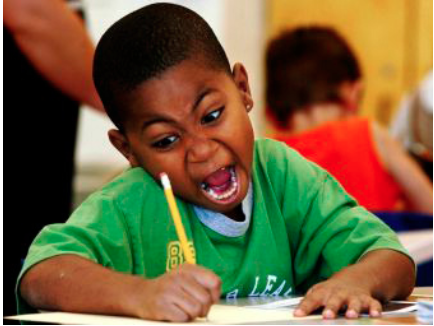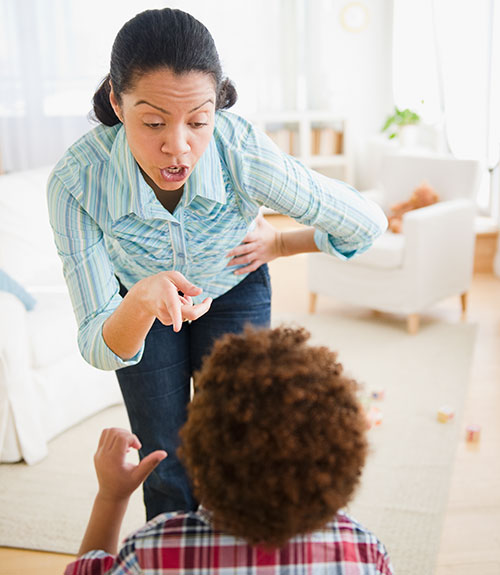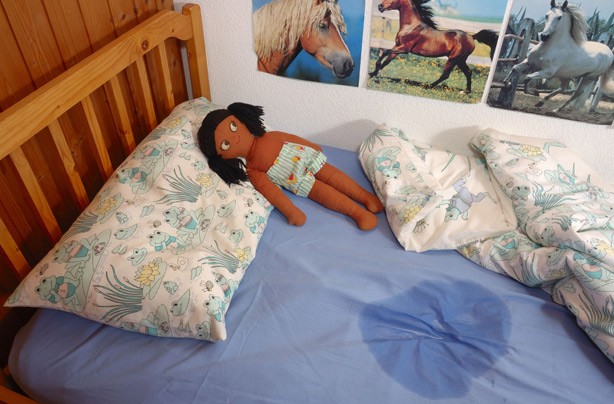“Dear Mother Wit,
I’m so tired of begging and pleading with my son to do his homework every night. It’s a struggle to pull him away from the TV, video games, and his computer. I don’t want to yell and scream. And I don’t want to put my hands on him. Please, can you give me some advice.”
 Ah, the Homework Wars.
Ah, the Homework Wars.
I envy parents who have naturally studious, disciplined children. I don’t know too many of those parents, but I fantasize that they exist and yes, I envy them.
How do you handle a child who doesn’t want to do homework?
Homework goes into the category of Good Habits. So think of setting up some rituals around homework.
Set up a schedule. For instance, what is the best time of evening for YOUR child(ren) to do their homework? I didn’t let my kids do their homework right when they got home from school. I gave them a light snack and encouraged them to play for about an hour, to transition out of the school day. Then—when they were very young—I’d review the evening’s assignments with them and I’d help them set up a plan to tackle it.
I let them know that I was available to help them, but I didn’t just jump in to help them. It’s a natural instinct to want to help your child get good grades and impress the teacher, but most teachers will tell you that when you do too much to help, you’re keeping the teacher from having a clear picture of your child’s strengths, weaknesses and progress.
Some children need quiet. Make sure they have a quiet, clear space to work, with all the supplies they need. And no TV or other distractions. This can be tricky when they begin doing homework on the computer obviously, because it’s hard to monitor them every minute and they could be surfing the web or playing on social media or YouTube. So I let my kids set a timer for their homework—they decided how long it should take—and when the timer went off, it was their job to show me what they’d done. That worked well.
I also used rewards. My children got privileges for being on the Honor Roll from elementary through high school. I didn’t push them to be on the Honor Roll, but they liked the rewards and that made a difference—not always, but enough to keep things positive overall. Yes, I paid for grades (teens usually prefer money or gift cards). After all, their goal is the world of work, where people are normally rewarded financially for high performance and good outcomes. If you’re not comfortable with paying them, have them choose an activity or item or something they REALLY want, and tie that to report card results.
Caution: not all children who refuse to do homework are being stubborn or wrong. Take the time to stay calm and make sure your child understands both the homework—exactly what the teacher is asking—and the information shared in class to help them understand it. Don’t hesitate to call or email the teacher if your child is not clear. Also encourage your child to talk with the teacher after school/class to get the information they need. If the teacher doesn’t cooperate, go to the principal, etc. Be assertive in ensuring that your child has everything they need to do that homework and do it well!
Your child might need a tutor in a difficult subject—don’t hesitate to get them the help they need! Start by asking their teacher in that subject who they might recommend, and then look for the best help available. Let your child know that everyone needs help in some things, and that there is no shame in having someone help you out.
Organization could be an issue. My son needed help, so we got an organizational tutor who helped him plan and attack his homework in an orderly fashion. I highly recommend getting a good idea of how your child processes information and looking at their daily school habits—like writing down the homework assignments correctly, bringing books home, etc.
Finally, think about “modeling” the behavior you want to see. If you’ve brought home some work from the office, consider letting your child see you do it—and refer to it as your homework. Talk about how you don’t always want to do it, but emphasize how good it feels to get it finished so you can do other, more enjoyable things. You could also do this with paying your bills, or even reading for pleasure.
Warning: this is likely to be an area of back-and-forth throughout your child’s K-12 years. Don’t expect it to be magically “fixed” and never appear again. Some children are naturally diligent, disciplined and organized—and then they get hormones and it’s a whole ‘nother story! Get your tools together, ask other parents how they handle these challenges, and do something nice for yourself along the way—you deserve it!
Next we will talk about what to do when your child refuses to eat their vegetables! Till next time, remember: DON’T HIT THE KIDS, HIT THE KEYBOARD!







Recent Comments